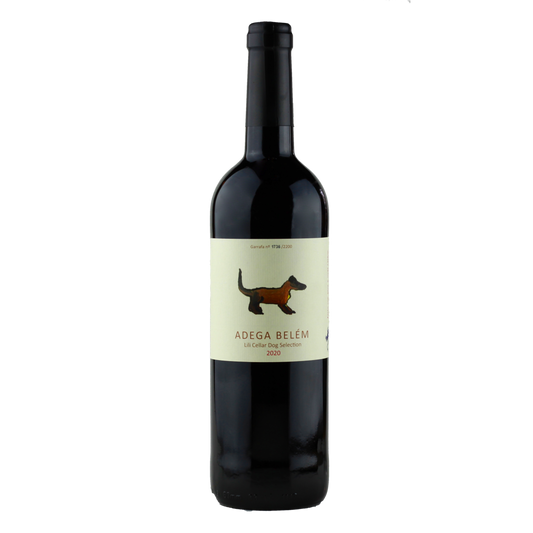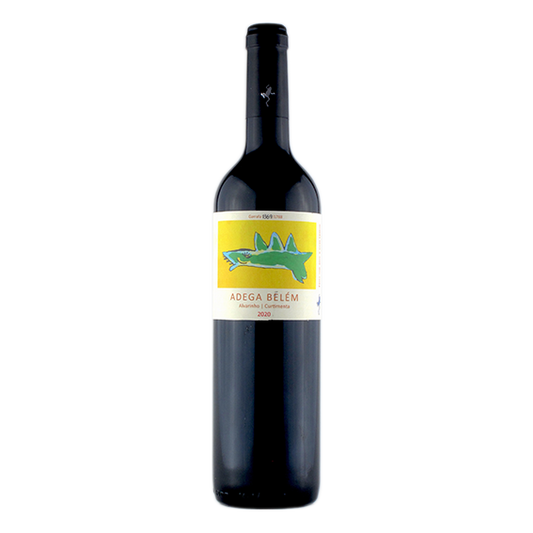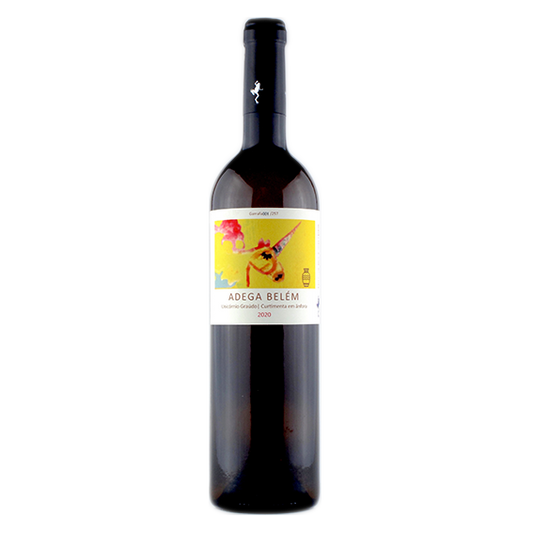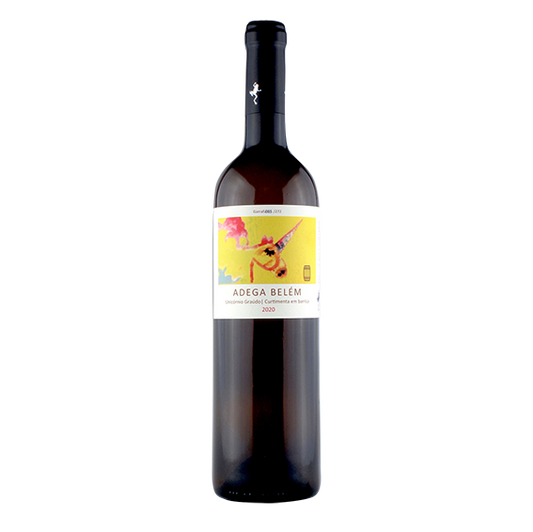Adega Belém is an Urban Winery in Lisbon. Located in the Belém area, in the neighbourhood of many other well-known attractions. The pedestrian bridge leading from the MAAT - Museum of Art, Architecture and Technology - leaves us practically at the doorstep of this pioneering and unique urban winery in Lisbon and the only one of its kind, as far as we know, in the country.
It is very different from the places where the wine used to gush directly from the barrels into the glasses and where a few snacks were served in between, places we are used to calling wineries. At the Adega Belém you can also have a drink and have a snack. But that's the only thing they have in common.
The great particularity is that at Adega Belém their wines are made precisely in this space. An authentic "professional" mini-winery in full operation. Vats, presses, hoses on the floor, barrels and pallets, everything that a normal winery has, with the difference that this one is just around the corner, near the Carris tram stop.
The grapes come from various places in the Lisbon wine region, from Setúbal Peninsula, along with other grapes picked from the vines at Tapada da Ajuda which is part of the Instituto Superior de Agronomia in Lisbon. "A wine from Lisbon, made in Lisbon."
The space that is now Adega Belém was once a car workshop, a testimony eternised by the many artefacts adorning the tasting room.
The couple responsible for this project are Catarina Moreira and David Picard, university researchers, she a biologist and he an anthropologist, before dedicating themselves to oenology. The Iberian frog is the winery's logo, and is related to Catarina's previous activity which was dedicated to the behavioural study of this frog.
Being good academics, the basis is always knowledge, so they studied oenology and viticulture at the Instituto Superior de Agronomia and at the University of Geisenheim in Germany. Catarina became assistant winemaker in the Swiss Valais, passed through the Alentejo and later, in 2017, became resident winemaker at Herdade da Barrosinha in Alcácer do Sal, where she worked until 2019 with António Saramago.
David, meanwhile, has done wine tourism research all over the world since 2016, from South Africa to California, Bordeaux, Austria and even China, which helped him understand how to bring wine tourism into the 21st century.
The search for an urban "industrial" location led them to the current space, followed by the saga of overcoming the many bureaucratic hurdles. Obstacles overcome, and in early 2019 they set to work on transforming the space. The wines of the 2020 vintage were already made in these facilities.
After everything was ready, the pandemic and the confinement appeared as another challenge to be overcome with regard to wine tourism. From 2021 onwards, this is already well under way, constituting an essential part of the project's strategic plan. At this point they offer a set of diversified activities and even some innovation.
As far as wines are concerned, their approach is that of low intervention in vinification combining traditional techniques of spontaneous fermentation, ageing in oak barrels, foot treading and skin maceration with more modern techniques.
Questions of how to minimise environmental impact are a concern they address through measures such as a variable frequency drive system to reduce energy consumption, use of solid separation filters and even their own waste water treatment plant.
The quality of the wine and the sustainability of the packaging material, among others, go side by side. They use light Bordeaux bottles and natural cork stoppers, recycled cardboard boxes in all deliveries and are even members of the recycling systems of the countries to which they send wine.
More than a commercially accepted message these days, for Catarina and David, sustainability and ecology issues are an attitude, a stance and a way of being in community.
The wines carry original names as well as creative labels. The Cellar Dog Selection range is the entry level range, divided between Cookie, the children's bunny, who christens the white wine, and Lili, the dog, who gives her name to the red.
The remaining range is made up of a series of single-varietal wines, Encruzado, an Alvarinho with tanning, a white Moscatel Galego also with tanning, and an unusual Moscatel Graúdo with tanning in an amphora called Unicórnio. The Adega de Belém Reserva red is a blend of Touriga Nacional and Alicante Bouschet.
From the Rabo da Rainha series, in addition to the white and red wines, there is a rosé from the 2020 harvest made from Castelão co-fermented with thick lees of the Moscatel Graúdo grape variety. Very interesting wines, of some daring and experimentation, with quality and much to tell. New wines are being made in a mix of irreverence, innovation and provocation that makes them a good reason to get to know them.
Catarina and David are equally perfect hosts, whether for the simple wine connoisseur or for those who want to know a little more about their home.
There is no shortage of reasons to be interested in getting to know this project, due to its differentiation in all aspects and, of course, because it is in the neighbourhood.
 Sold out
Sold out Sold out
Sold out







